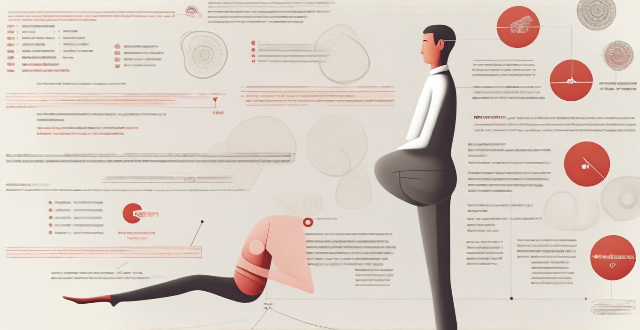Emotional Stress

What role does sleep play in managing stress ?
Sleep is crucial in managing stress by regulating hormones, improving cognition, promoting emotional stability, offering physical health benefits, and enhancing quality of life. Prioritizing sleep is key for effective stress management.

How does meditation help in reducing stress levels ?
Meditation is a practice that helps in reducing stress levels by calming the mind and body, improving concentration, promoting emotional health, increasing self-awareness, and enhancing mindfulness. It is a powerful tool for managing stress effectively and leading a happier, healthier life.

Is yoga an effective method for stress relief ?
Yoga is a popular method for stress relief, offering physical, mental, and emotional benefits. Research supports its effectiveness, and incorporating yoga into your routine can significantly reduce stress levels. Consistency and personalization are key to experiencing its full benefits.

How does exercise influence mood and emotional stability ?
Exercise has a positive impact on mood and emotional stability by releasing endorphins, reducing stress hormones, enhancing resilience, promoting mindfulness, and providing a sense of achievement. Incorporating regular exercise into your lifestyle can lead to better mental health and overall well-being.

Are there specific workout routines designed for emotional stability ?
Emotional stability is an important aspect of overall well-being, and exercise can play a significant role in achieving it. Cardiovascular exercises like running, cycling, swimming, and dancing increase heart rate and blood flow, reducing stress and anxiety levels while releasing endorphins that improve mood. Strength training such as weightlifting or resistance band exercises build muscle strength and endurance, improving self-esteem and confidence while reducing symptoms of anxiety and depression by promoting the growth of new brain cells and increasing neurotransmitter levels. Yoga and meditation practices focus on mindfulness, breathing techniques, and relaxation, reducing stress levels and improving cognitive function, memory, and attention span. Incorporating these activities into your fitness routine can have a positive impact on your emotional stability and overall well-being.

How can counseling help women dealing with infertility-related stress ?
Counseling is crucial for women dealing with infertility-related stress. It helps identify emotional distress, address mental health concerns, build resilience and coping strategies, navigate medical treatment options, and foster hope and healing. By providing emotional support and promoting self-care practices, counseling empowers women to face the challenges of infertility with strength and courage.

How does stress management contribute to sports health maintenance ?
Stress management is crucial for athletes' physical recovery, immune function, mental clarity, emotional well-being, consistency in performance, and competitive advantage. By managing stress effectively, athletes can improve their overall health and achieve success in their sport.

How much exercise is needed to see emotional benefits ?
Engaging in regular physical activity is not only beneficial for your physical health but also for your emotional well-being. The question of how much exercise is needed to see emotional benefits is a common one, and the answer may vary depending on individual factors such as age, fitness level, and personal goals. However, there are some general guidelines that can help you determine the amount of exercise needed to experience emotional benefits. There are various types of exercise that you can incorporate into your routine, including aerobic exercise, strength training, flexibility exercises, and balance exercises. Regular exercise has been shown to have numerous emotional benefits, including reduced stress and anxiety, improved mood, better sleep, and increased self-esteem. According to the American Heart Association, the following guidelines are recommended for adults to achieve significant health benefits: - At least 150 minutes per week of moderate-intensity aerobic activity or 75 minutes per week of vigorous-intensity aerobic activity. - At least two days per week of strength training exercises involving all major muscle groups. - At least two to three days per week of flexibility exercises to maintain range of motion and prevent injury. - As needed, particularly for older adults or those with balance issues. It's important to note that individual needs may vary, and it's essential to listen to your body and adjust your exercise routine accordingly to ensure you're getting the most out of your workouts.

How does stress affect women's mental health ?
This text discusses the effects of stress on women's mental health, including anxiety and depression, sleep disturbances, emotional eating, low self-esteem, difficulty concentrating, irritability and mood swings, substance abuse, and physical health issues. It emphasizes the importance of self-care practices to manage stress effectively.

How does stress management affect women's well-being ?
Stress management plays a crucial role in women's well-being, affecting their physical, mental, and emotional health. By managing stress, women can improve their immunity, sleep quality, and reduce the risk of chronic diseases. It also helps in improving mood, concentration, and reducing anxiety and depression. Stress management can lead to improved relationships, self-esteem, and increased resilience. Overall, it is essential for women's well-being and can lead to a happier and healthier life.

In what ways do sports help with emotional regulation in children ?
Engaging in sports can significantly aid children in developing emotional regulation skills by promoting stress reduction, enhancing self-esteem, developing resilience, encouraging teamwork and social interaction, teaching discipline and self-control, providing an outlet for energy, and promoting mindfulness.

What is the relationship between exercise, sleep quality, and emotional well-being ?
The text explores the interconnectedness of exercise, sleep quality, and emotional well-being. It outlines how physical activity enhances mood through endorphin release and long-term health benefits. Sleep quality is crucial for emotional processing and resilience against stress. Mutual benefits exist between exercise and sleep, with each improving the other. A holistic approach to health includes attention to all three components for optimal well-being.

Can stress impact a woman's ability to conceive ?
The text discusses the potential impact of stress on a woman's ability to conceive, detailing how stress can lead to hormonal imbalances that affect menstrual cycles and ovulation, decreased sex drive, impaired egg quality, and difficulty maintaining pregnancy. It also provides coping strategies such as mind-body techniques, exercise, building a support system, and making lifestyle changes to manage stress levels and potentially improve fertility.

What is the significance of emotional intelligence in educational psychology ?
Emotional intelligence (EI) plays a pivotal role in educational psychology, impacting student success and well-being. Key aspects of EI include self-awareness, self-regulation, motivation, empathy, and social skills. For students, high EI correlates with better academic performance, social skill development, mental health, and resilience. For teachers, it enhances classroom management, instructional strategies, student relationships, and professional development. Schools benefit from a positive culture, effective intervention programs, and increased parental involvement when focusing on EI. Integrating EI into education fosters a generation equipped for academic, emotional, and social success.

How do sports help in the emotional regulation of teenagers ?
Adolescence is a period of significant emotional, physical, and psychological changes. Sports can play a crucial role in helping teenagers regulate their emotions effectively by promoting physical health, developing social skills, building self-esteem and confidence, providing an outlet for emotions, and teaching discipline and responsibility. Encouraging teenagers to participate in sports is an investment in their overall wellbeing and future success.

Does exercise influence emotional regulation and mental well-being, which in turn affects cognitive processes ?
The article explores the relationship between exercise, emotional regulation, mental well-being, and cognitive processes. It suggests that regular physical activity can positively impact emotional regulation by reducing stress levels, improving self-esteem, and providing a healthy outlet for negative emotions. Exercise also contributes to improved mental well-being by alleviating symptoms of depression and anxiety, promoting relaxation, and providing opportunities for social interaction. These factors, in turn, influence cognitive processes such as attention, memory, problem solving, and decision making. Overall, the article concludes that incorporating exercise into daily routines can have numerous benefits for overall health and well-being.

Can exercise be a substitute for medication in treating some forms of emotional distress ?
This article explores the potential benefits of exercise in treating emotional distress, such as anxiety and depression, and discusses whether it can be a substitute for medication. While exercise has numerous benefits for mental health, including stress reduction and improved sleep quality, it may not be suitable for everyone or replace medication in all cases. Factors such as symptom severity and individual differences should be considered when determining the best approach to managing emotional distress. Exercise should be viewed as part of a comprehensive treatment plan that includes medical care, therapy, and lifestyle changes tailored to the individual's needs.

Is there a difference in emotional management between casual and professional athletes ?
The text is a topic summary about emotional management in sports, focusing on the differences between casual and professional athletes. The article outlines key points related to self-awareness, self-regulation, and motivation for both groups. It notes that while both types of athletes must manage their emotions, professional athletes often have more structured approaches and greater motivation due to the high stakes involved in their careers. Casual athletes may benefit from adopting some of the emotional management strategies used by professionals but generally face fewer consequences if they fail to do so.

How does exercise affect mood and emotions ?
Exercise has numerous positive impacts on mood and emotions, including the release of endorphins for a "runner's high," reduction in anxiety and stress by lowering cortisol levels, and improvement in self-esteem through goal setting and physical changes. Regular activity also enhances sleep quality by regulating sleep cycles and cognitive function by increasing blood flow to the brain. Social interaction during exercise provides emotional support and long-term benefits include prevention of depression and building resilience against stress.

How can women develop their emotional intelligence in the workplace ?
Emotional intelligence (EQ) is a crucial skill for success in the workplace, especially for women who often face unique challenges and biases. Developing EQ can help women navigate complex social dynamics, build strong relationships, and lead effectively. Here's how they can enhance their emotional intelligence: Self-awareness involves understanding your own emotions and practicing self-reflection. Self-regulation means managing your emotions and staying calm under pressure. Motivation includes setting goals and finding sources of inspiration. Empathy involves listening actively and showing compassion. Social skills entail improving communication and building relationships. Continuous learning means seeking feedback and engaging in training. By focusing on these key areas, women can enhance their ability to navigate the workplace effectively. Remember that developing EQ is an ongoing process that requires practice, patience, and a commitment to personal growth.

How do celebrities handle stress and pressure ?
Celebrities manage stress through meditation, exerciseCelebrities manage stress through meditation, exercise, social support, time management exercise, therapy, creative outlets, social support, time management, and healthy lifestyle choices.

How do successful athletes manage pressure and stress ?
Successful athletes use various strategies to manage pressure and stress, including visualization and mental rehearsal, mindfulness and meditation, goal setting and preparation, routine and consistency, social support, physical health and recovery, and flexibility and adaptability. These techniques help them stay calm, focused, and resilient during major competitions.

How can stress management contribute to better personal health ?
Stress management is crucial for maintaining physical and mental health, as it can reduce the risk of chronic diseases, improve sleep quality, boost the immune system, reduce anxiety and depression symptoms, enhance cognitive function, and increase resilience. Incorporating stress management techniques into daily routines can lead to better overall well-being and a higher quality of life.

How does exercising regularly impact stress levels and overall mood ?
This text discusses the impact of regular exercise on stress levels and overall mood. It highlights how physical activity can help reduce stress by releasing endorphins, regulating cortisol levels, improving self-esteem, and providing distraction from worries. Additionally, it explains how exercise enhances mood through immediate effects like increased energy and a feeling of achievement, as well as long-term outcomes such as better sleep and social interaction. The text concludes that regular exercise has a profound impact on mental well-being, promoting both looking good and feeling good.

What is the importance of emotional intelligence in sports leadership ?
Emotional intelligence is crucial for sports leadership, including empathy, communication skills, decision-making, conflict resolution, and motivation. Leaders with high EI can create a positive environment, make informed decisions, and inspire their team members to achieve success.

How do athletes cope with the mental stress of competition ?
Athletes employ various strategies to cope with mental stress during competitions, including visualization and imagery, breathing techniques, goal setting, social support, mindfulness and meditation, professional help, and maintaining healthy lifestyle habits. These methods range from mental preparation techniques to seeking professional guidance and engaging in leisure activities for relaxation and enjoyment. By incorporating these strategies into their routines, athletes are better equipped to handle the psychological demands of competition.

How can I reduce stress in my daily life ?
The article provides several tips on how to reduce stress in daily life, including identifying the sources of stress, practicing mindfulness and meditation, exercising regularly, eating a healthy diet, getting enough sleep, and connecting with others. It emphasizes the importance of taking steps to manage stress and improve overall well-being.

How do health management apps help individuals manage stress and improve mental wellbeing ?
Health management apps offer various features to help individuals manage stress and improve their mental wellbeing, including mindfulness exercises, sleep tracking, physical activity tracking, nutritional guidance, social support, relaxation techniques, goal setting, and educational content.

How do I manage stress while training for a marathon ?
Managing stress is crucial during marathon training. Tips include setting realistic goals, following a structured plan, prioritizing recovery, staying hydrated and nourished, getting enough sleep, practicing mindfulness, seeking support, managing time wisely, and embracing the process. These strategies help minimize stress and make the training journey more enjoyable.

Are there any foods that can help alleviate stress ?
The text provides a summary of foods that can help alleviate stress, including dark chocolate, avocado, blueberries, salmon, and chamomile tea. Each food is explained in terms of its benefits and recommended intake. The article emphasizes that while these foods may help reduce stress levels, they should not be used as a substitute for professional medical advice or treatment.